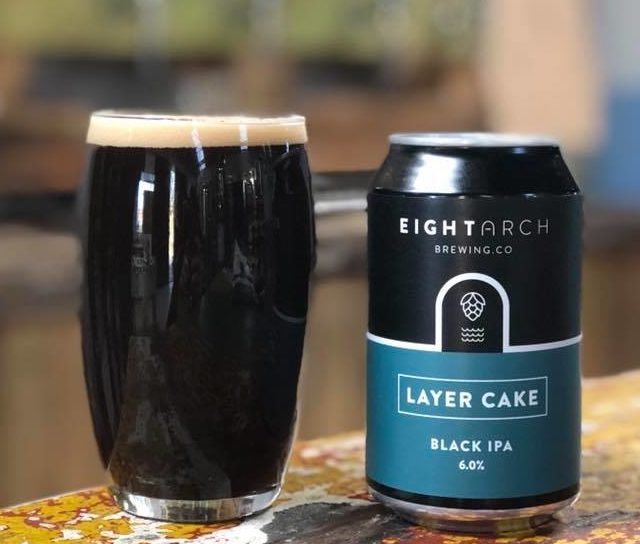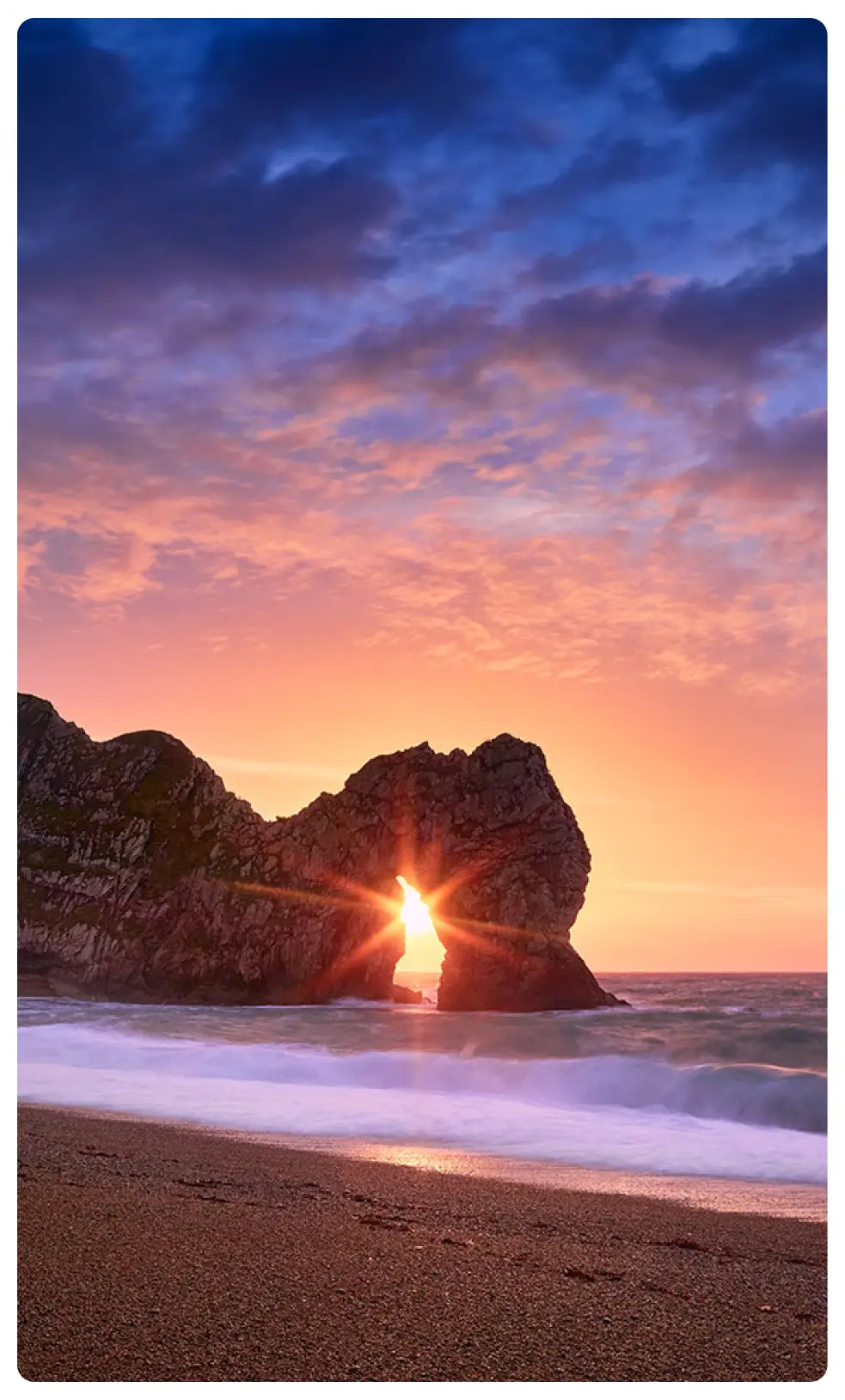Picture the scene: it’s summer and visitors are spilling out of the Eight Arch Brewing Company’s tap room, enjoying beer brewed on the premises and the view over a pretty meadow. Afterwards, the malt and hops used to make the beer they’ve been drinking will be sent to a local farmer to feed cattle.
For founder Steve Farrell, that encapsulates the joy of running a rural business. He recently expanded into an adjacent unit, nearly tripling the size of the overall premises and making the original tiny tap room far bigger. Open on Fridays between four and eight, the child (and dog) friendly bar attracts both people coming for a pint after work and those stopping by for a drink before going out in town.
Farrell had not been expecting it to be quite so popular. “Thanks to Facebook, when we opened the new taproom in 2018, there were queues two or three deep at the bar and when we put on a beer festival one weekend, we sold 1900 pints; some had to queue for three quarters an hour to get a drink,” says Farrell, who started the brewery in 2015.

That was a good time to start a brewing business as the so-called craft beer revolution was at its peak, raising awareness of small-scale brewing. Farrell, who grew up in Wimborne, was fascinated by the history of brewing in the town, and relished the idea that he was reinvigorating a local industry that had fallen into decline. “There used to be five or six brewers here in the late 1800s, plus a maltings. It was nice to bring back that tradition as the first new brewery in the town for eighty years,” he explains. Its name comes from the structure of a nearby bridge.
Farrell originally worked as a lorry mechanic who had got into home brewing. Like so many hobbyists, he developed a real enthusiasm, went on brewing courses and kept upgrading his kit to make a better quality product. When the family transport company he’d been working for closed down, starting a brewing business was an obvious career-change option.
The initial plan was to make beer on a small scale to sell to the local community in his home town “and to make enough money to live on.” He did everything himself: brewing, packaging, accounting and deliveries, an advantage as it gave customers a single (and personal) point of contact in the early days as the business was getting established.
“It was my project, my brewery, my tap room. People liked being able to come in and talk to the person who had brewed the beer, and in turn I asked for feedback on the beer prototypes and took on board their observations,” Farrell explains.
The beers produced by Eight Arch are in the middle ground between traditional bitters and the hoppier craft brews. They’ve won several awards from SIBA (the Society of Independent Brewers). The best seller is an IPA (India Pale Ale) called Corbel but that’s just part of a range that includes traditional pale ale, porter, stout, and a variety of flavoured beers such as coffee, peanut butter, blueberry and raspberry.
“We aim for consistency so the customer knows what to expect. They want their beer to taste the same next week as it does this week,” says Farrell.

While the brewery’s location is rural, it relies on urban conurbations for most of its custom. “Country pubs are often tied to breweries, and if they’re not, they tend to have only one or two hand pumps because there is less footfall,” explains Farrell, who has benefited from having a “guardian angel” mentor with previous senior management experience at a well-known brewery. “He told me from day one that he didn’t know how to brew beer – that was my job,” recalls Farrell. “But he knows how the business side works.”
His mentor has forced him to think more strategically. “He is good at analysing the figures and explaining what they mean,” Farrell explains. “He will look at the orders and ask me ‘what does that tell you?’ which might be that we need more tanks. And he makes me focus on profitability.
“Hindsight is a wonderful thing. I never expected to sell as much beer as we do. If I knew then what I know now, I would have bought a bigger brewing kit to start with rather than have to upgrade it to one twice the size later on.”

the name
With his mentor encouraging him to grow the business, Farrell has been thinking deeply about the implications of expansion. “Increasing production comes up in conversation every day and I’m firmly wedged on the fence about it. We are getting more and more permanent lines in outlets and I don’t like turning down orders. We could easily sell double the volume that we make now – we have the space to do it – but it’s not as simple as just getting another couple of fermenters. If we get that capacity, I would have to sell that extra beer produced and that would mean working at weekends or hiring more staff, and then we might feel we had to expand again in eighteen months. At the moment we are three mates making beer and we’re happy.
“We sell everything we make, we are profitable, and apart from some equipment loans we have no debt. And by September 2019 we had already surpassed the entire turnover for the previous year.”
Eight Arch is dependent on a team of Farrell, his head brewer Mark Wainwright, a former bar manager, cellarman and brewer for a pub chain, and a colleague who handles deliveries, marketing and sales. Word of mouth has been so effective that Eight Arch haven’t needed to do much selling to shift the 7000 pints they produce each week. “Before the Covid-19 pandemic, we had weeks where 70% was sold before it was even brewed,” says Farrell. “There was an occasion when we had eight firkins [576 pints] unsold so we had to do a few sales calls; that was the first time we’d done any active selling in months.”
In fact, Farrell has struggled with the “juggling act” involved in supplying wholesalers without leaving the local market potentially short. “One London wholesaler took eight pallets last year and I felt like the stock was edging away from local customers; I didn’t want that as they’re the people who got us to where we are,” he says.
In an ideal world, having sold four pallets (about 5000 pints) last year to a company in Italy, Farrell would also like to do more exporting, depending on what happens with Brexit.
But for now, the focus has been on retail sales through pubs and their own tap room and there is a two-month wait for any wholesaler who wants to be supplied. That’s perhaps not a bad thing, as Farrell suspects that being available in only small batches gives the beer a certain exclusivity and desirability.
Farrell loves the work-life balance he has achieved by having his own business. “My dad was always gone by six in the morning. He came back at seven, ate his dinner and fell asleep in his chair,” he recalls. “I want to be able to do the school run, take my wife to lunch and get home before the kids are in bed.”
He describes his management style as “laid-back and chilled out,” saying: “I make beer; what better job can you have? We start the day with a coffee and a game of ping-pong and at the end of the day we play music and have a beer. A big brewer in London told me our lifestyle was a template he would love to copy.”
But it’s not all fun and games. “Ultimately, we are a business and we have to get stuff done,” says Farrell. “We brew, package, sell, and repeat the process. Some days we don’t talk at all because we are so busy. We wouldn’t be in the position we are today if we didn’t take it seriously.”
He wishes the government would do more to support small rural businesses, especially pubs, by reducing rents and rates. “Small independent pubs are the hub of their communities,” he says.
Another thing that bothers Farrell is that the government might one day do away with small brewer’s duty relief (tax rates are currently stepped so that small producers don’t have to pay as much duty as bigger operations). He explains: “If they could guarantee that the relief will be there for at least a certain timescale, it would give brewers in our position more confidence. If politicians get rid of it, that would wipe out our profit and finish off a lot of independent brewers.”
Researched and written for Ward Goodman by DECISION magazine











